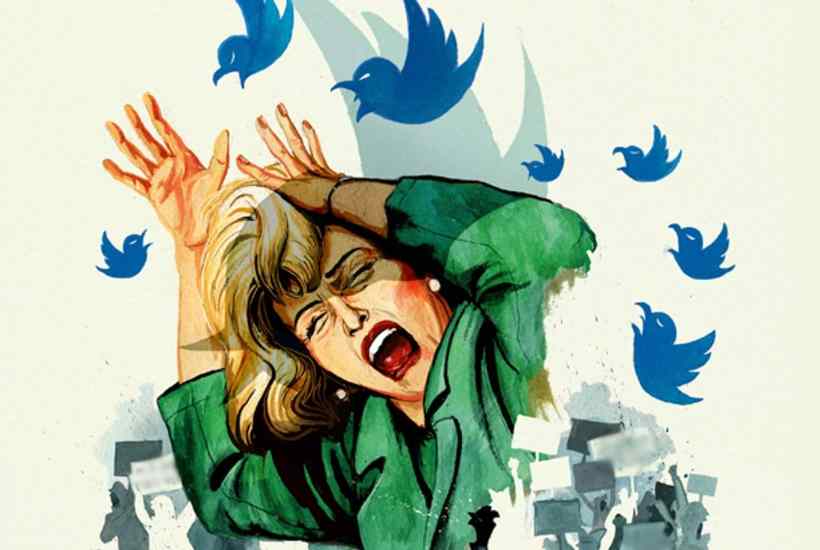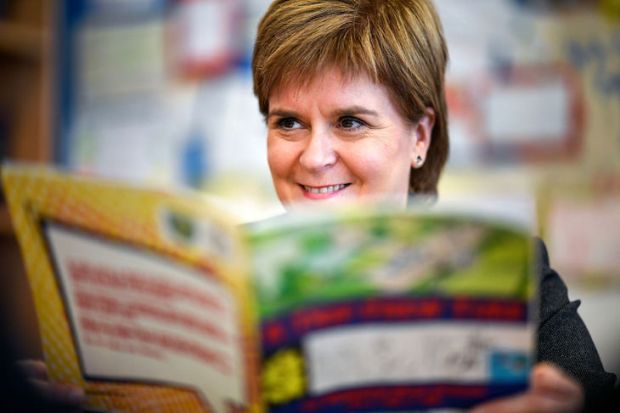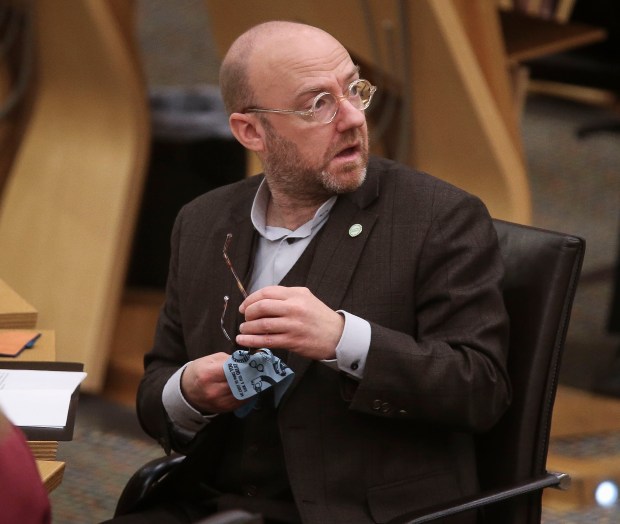If you take any interest in social media, Silicon Valley, or the culture wars — which all seem to be the same thing these days — you will be aware that the world is currently ending. At least, that is the impression given by those reacting to an attempt by Elon Musk to buy Twitter. Robert Reich, Bill Clinton’s former labour secretary, inveighs against Musk’s ‘libertarian vision’ for the internet as ‘dangerous rubbish’ and intones that it would be ‘the dream of every dictator, strongman, demagogue and modern-day robber baron on Earth’. (He also seems pretty peeved that Musk blocked him.)
Professor Jeff Jarvis, TV Guide reviewer turned Supreme Arbiter of Journalistic Ethics, opined: ‘Today on Twitter feels like the last evening in a Berlin nightclub at the twilight of Weimar Germany.’ The CUNY professor then tweeted a link to Vera Lynn singing ‘We’ll Meet Again’ for good measure. Industry site TechCrunch greeted the news by characterising Musk as ‘a petty man animated by a misguided notion of free speech that mostly means posting anything you want to a privately owned social network regardless of the potential harm it may cause’. Furthermore, it was ‘not hard to imagine Musk reversing Twitter’s progress on hate and harassment’, said progress seemingly referring to the booting of Donald Trump from the platform and cracking down on what Twitter considers ‘misinformation’.
Wired offered a more thoughtful take but noted, part-bewilderment, part-terror exuding from the screen, that Musk’s vision for Twitter was of ‘a platform on which not truth, but freedom is the most important value’ and that the Tesla and SpaceX CEO considered freedom of speech ‘nothing less than an existential need’. Lord knows what other sinister libertarian views this man holds. He might believe in freedom of association or even assembly.
It’s not clear that his bid to buy Twitter will be successful, as Musk himself acknowledges. Yet the very notion has inspired a highly-enjoyable hysteria from ideologues who were previously confident of their control of a platform that daily shapes the political, journalistic and cultural agenda. In recent years, the idea that Twitter had an undue – and malign – influence on democracy has been deemed pure gammonry; with the threat of Musk taking over, it’s now axiomatic. Robert Reich warns that, in a Musk-run Twitter, ‘that world would be dominated by the richest and most powerful people in the world, who wouldn’t be accountable to anyone for facts, truth, science or the common good’. Reich’s fulminations are telling: Twitter is already dominated by the rich and powerful; his only concern is that rich and powerful people who disagree with him might take the reins. Of course, anyone who doesn’t like the idea of Elon Musk owning Twitter could just, ahem, start their own social media network.
Those freaking out don’t hate Musk because of his business style, his flexible attitude to the requirements of the Securities and Exchange Commission, or the way he allegedly treats his employees. Such things are routinely overlooked provided the person in question has the correct politics, which Musk does not. It’s not that he’s even a conservative, he’s just a techno-utopian in the vein of John Perry Barlow and the cyber-libertarians of the early internet. He has smoked weed on the Joe Rogan podcast, released a rap song eulogising the late Cincinnati Zoo gorilla Harambe, and even guest-hosted PewDiePie’s Meme Review. Musk is not a conventional billionaire, if such a thing exists. What his critics fear is not him personally but the risk that a deeply political project to redraw the parameters of public debate, one conducted not through national democracy but by supranational corporate fiat, will be disrupted.
Conservatives and old-school liberals, having grown tired of progressive big tech and its mercurial and ideological standards, are hailing Musk as their redeemer. In one of those neat inversions that seem to happen every generation or so, left and right have switched places on the libertarian-authoritarian axis at least as far as cultural politics is concerned. Today’s progressives wield untrammelled cultural power and use it to impose their doctrines and suppress those of their opponents, and do so based on ever-evolving definitions of harm, bigotry and threat to democracy. Today’s conservatives feel powerless no matter how many elections they win and have grown less interested in advancing conservative ideas than in claiming as their own abandoned liberal ideas such as freedom of expression, popular democracy and legal and institutional neutrality. If John Landis remade Animal House today, Omega Theta Pi would be the progressive fraternity, seven masks to each face, monitoring the college newspaper for Russian disinformation and reporting the rowdy conservatives at Delta Tau Chi to Dean Wormer for vaping in the dorms and failing to wear their pronouns badges.
It’s only fitting, in the neo-feudal digital dystopia we now inhabit, that the serfs would become excited at the possibility of a new, more benign overlord. In a world increasingly run by the shoeless autocrats of Silicon Valley, the closest thing to democracy is cheering on a vaguely libertarian billionaire against dementedly authoritarian billionaires. A Musk-owned Twitter could bring good, bad or mixed outcomes for individual users, the concept of free speech and the global discourse the site shapes to a degree prime ministers and presidents could only dream of, but that’s not really the point.
Wouldn’t it be better if we re-integrated liberal norms about free speech into elite education and the media? That way, progressives might stop perceiving free expression as a right-wing talking point and remember how central it has been to social progress. Wouldn’t it be better if Twitter, recognising its place in public discourse, opted for self-regulated neutrality rather than trying to impose its values on almost 200 countries, without regard to democratic oversight or national particularities? The failure to do so only hastens the day when it will face heavy-handed regulation across various jurisdictions and will somehow have to make that work for what is, in spirit, a post-national platform. Twitter rediscovering neutrality is unlikely and intensified regulation perhaps undesirable but either is better than relying on the benevolence of billionaires.
Got something to add? Join the discussion and comment below.
Get 10 issues for just $10
Subscribe to The Spectator Australia today for the next 10 magazine issues, plus full online access, for just $10.




















Comments
Don't miss out
Join the conversation with other Spectator Australia readers. Subscribe to leave a comment.
SUBSCRIBEAlready a subscriber? Log in